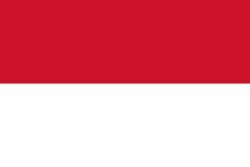In the hotel industry, accurately calculating hot water requirements is essential for ensuring guest comfort and operational efficiency. Many factors influence this calculation, such as the number of rooms, types of bathrooms, and hotel facilities. By carefully evaluating these factors, hotel operators can choose a hot water system that meets guest demand without unnecessary energy expenses.
This guide provides a step-by-step approach to accurately calculating a hotel's hot water needs based on its size and guest requirements. Read on for a detailed explanation.
5 Factors to Consider in Calculating Hotel Hot Water Needs
To manage a hotel effectively, ensuring an adequate hot water supply is crucial. Calculating hotel hot water requirements involves evaluating various elements. Here’s what to consider:
1. Number of Rooms
The starting point for hot water calculations is the number of hotel
rooms. Each room’s hot water usage depends on activities like showering
and washing hands. The more rooms there are, the greater the demand.
Example Calculation:
For a hotel with 100 rooms needing 50 liters of hot water daily per room:
100 rooms×50 liters=5,000 liters of hot water per day
2. Bathroom Type
Bathroom design, such as showers or bathtubs, significantly impacts daily
hot water needs. Showers generally use less water than bathtubs, though
specific features may increase demand. Here’s a breakdown:
- Shower: Typically uses 40 liters per use.
Example Calculation: For 50 rooms with showers, assuming each guest showers once daily:
50 rooms×2 guests×40 liters=4,000 liters per day
- Bathtub: Uses about 100 liters per use.
Example Calculation: For 30 rooms with bathtubs, used every other day: 30 rooms×2 guests×100 liters/2=3,000 liters per day
3. Hotel Facilities
Hotel services such as laundry and kitchen also require hot water. For
precise estimations, historical data or surveys help determine daily
requirements.
Example Calculation for Dishwashing: A restaurant serving 100 guests daily with five wash cycles, using 20 liters per cycle:
100 guests×5 cycles×20 liters=10,000 liters
4. Operational Efficiency
Evaluating the energy efficiency of the chosen water heating system is
vital. Key considerations include the water heater type (e.g., gas or
electric), capacity, and maintenance schedule, as these affect overall
system efficiency.
5. Hotel Type (Luxury or Budget)
Luxury hotels, which often feature additional amenities like private
jacuzzis, have higher hot water demands than budget hotels. Matching
system capacity to the hotel type optimizes energy use and guest
satisfaction.
Rheem: Trusted Solutions for Your Hotel's Hot Water Needs
Estimating hot water requirements involves a careful assessment of factors like room count, bathroom setup, and hotel category. Considering these, Rheem offers a wide range of water heaters tailored to residential and commercial needs, ensuring guest comfort with reliable systems.
Ready to upgrade your hotel’s hot water system? Visit Rheem today and discover high-quality heaters designed to enhance guest satisfaction.




5 Effective Ways to Calculate Hot Water Needs for Hotels